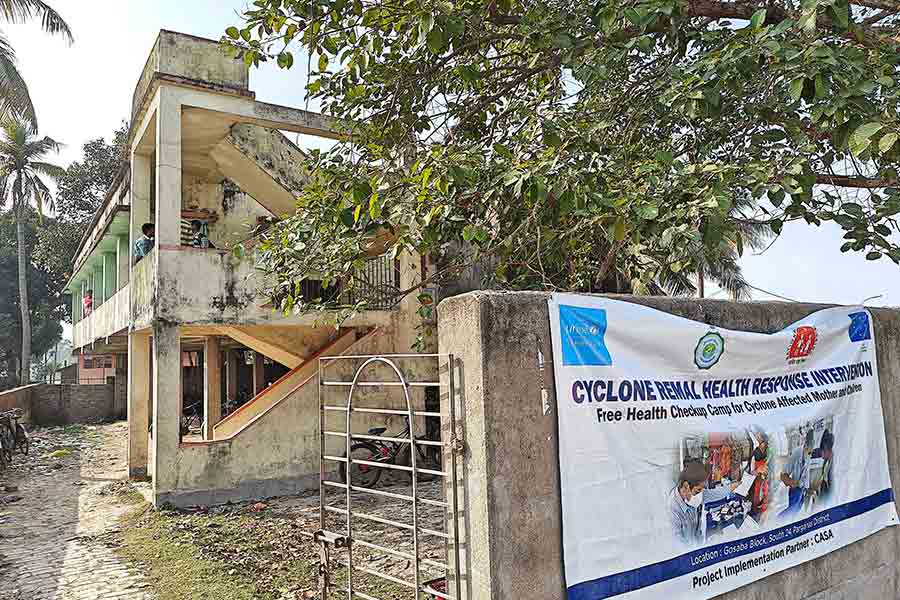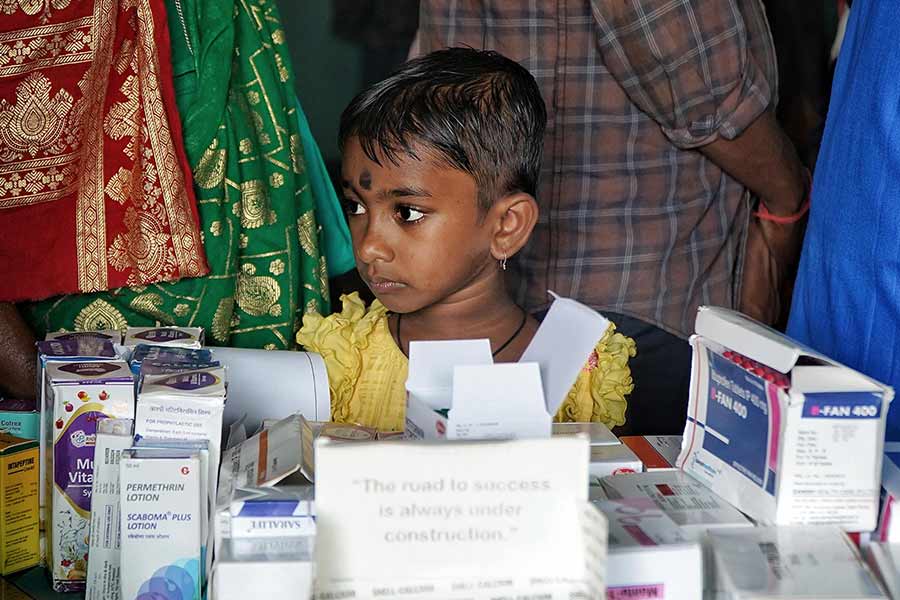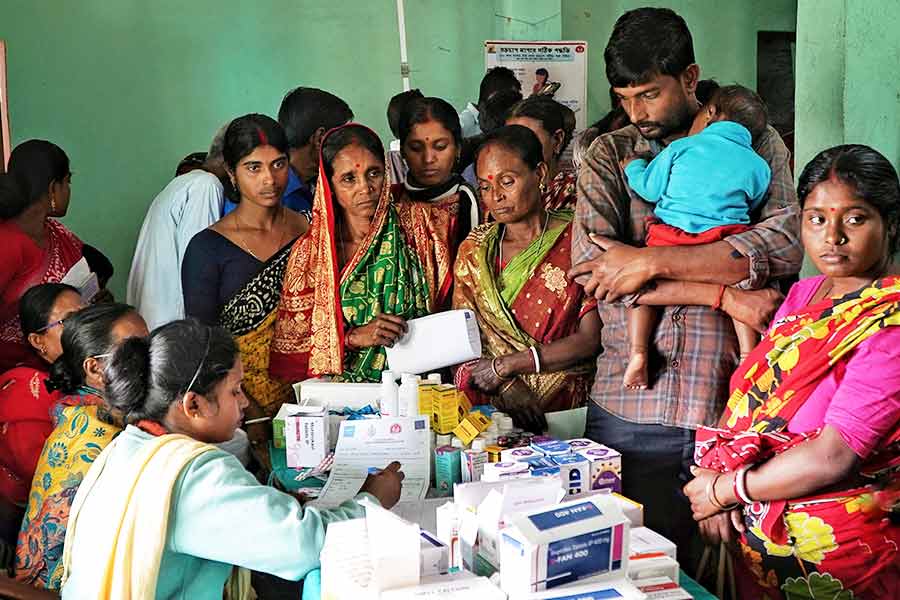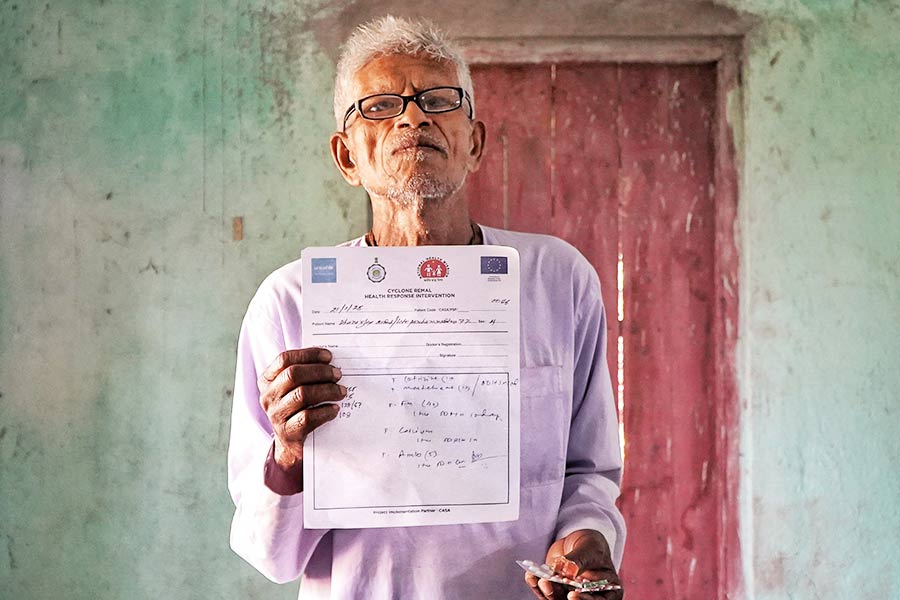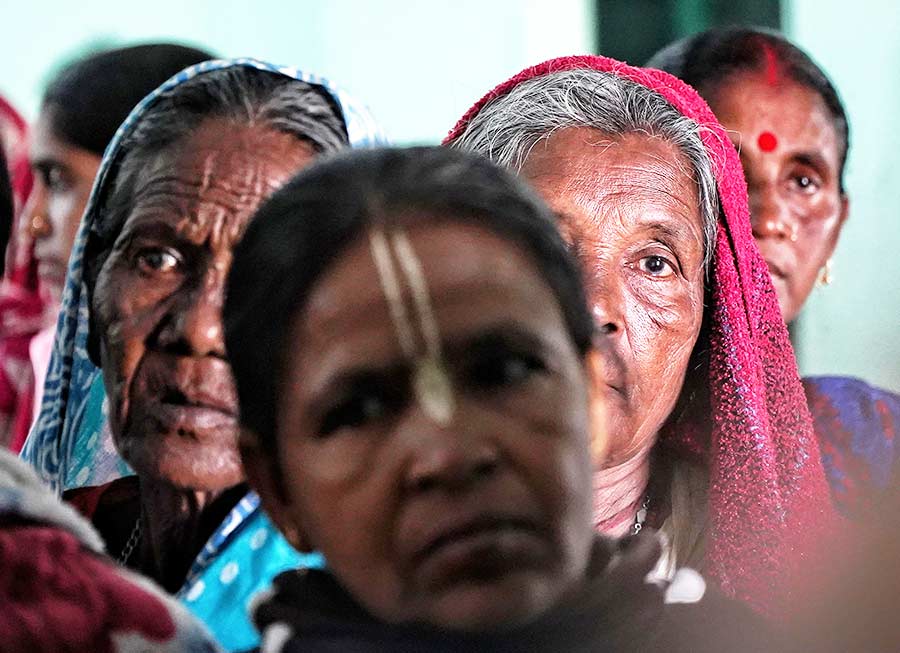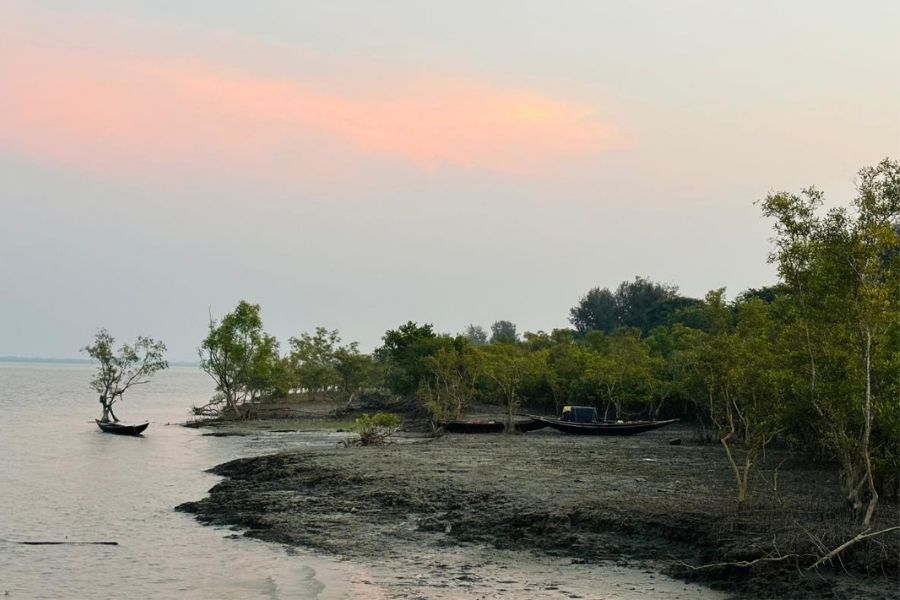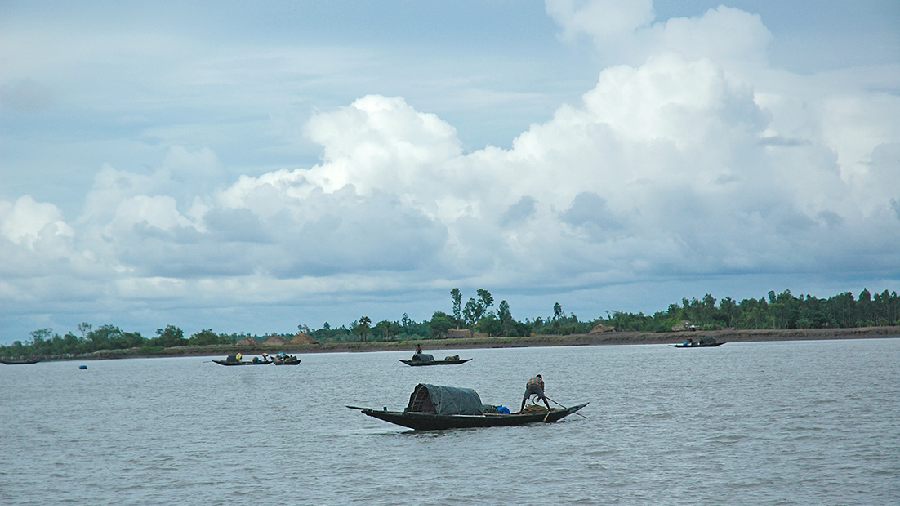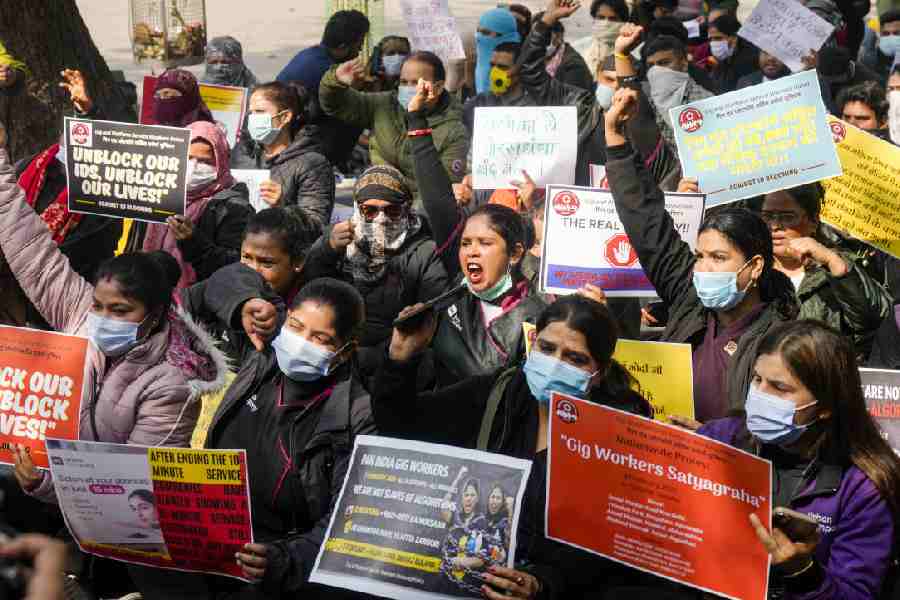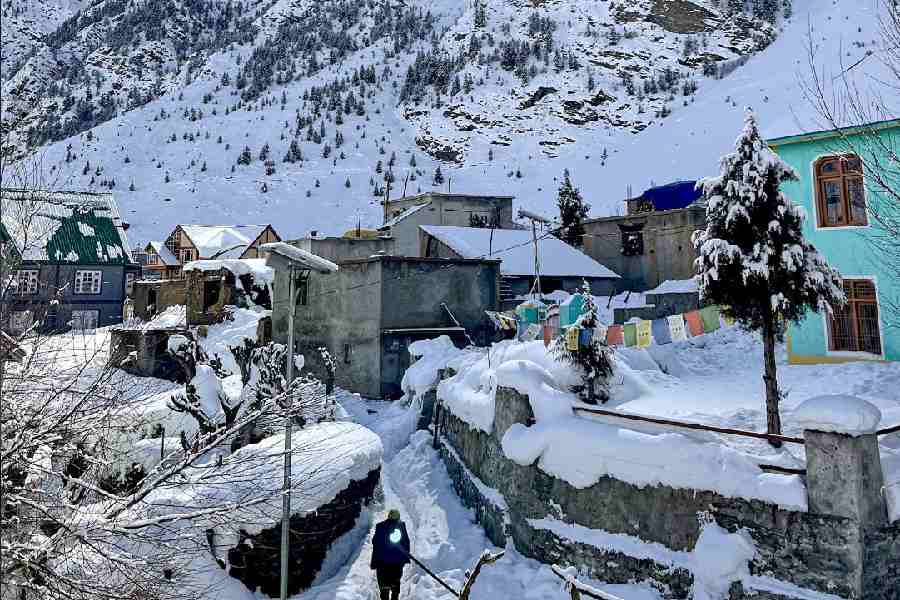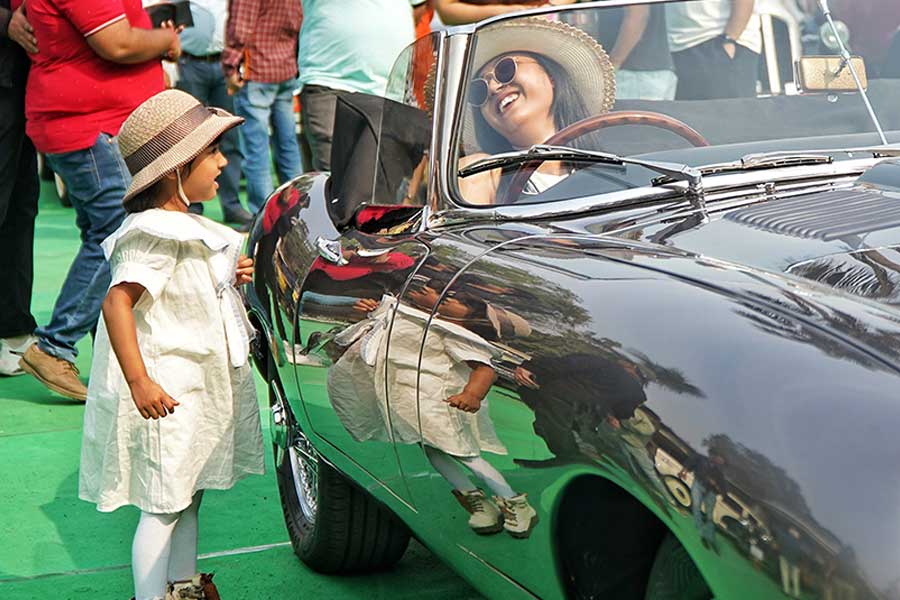Unique health intervention in Sunderbans
Lahiripur within Gosaba block is one of the most climate vulnerable islands in Sunderbans and hence, was selected as one of the regions where Unicef organised a mobile health camp under its recent health intervention project, named “post Remal recovery and resilience building initiative”. The West Bengal government provided logistical support and the European Civil Protection and Humanitarian Aid Operations (ECHO) Union lent funds support. One of the 160 clinics, organised within the disaster vulnerable areas of Sunderbans, was set up recently in a cyclone shelter in Lahiripur. “Building resilience in the people in vulnerable areas of Sunderbans exposed to recurring natural disasters is extremely critical,” said Monjur Hossain, chief of Unicef in West Bengal, while explaining the objective of the programme.
Children report cold and cough
The health camp found many children, newborn to teenagers, coming to the camp and getting treated by the doctor and counselled by the health workers present. “Though we are used to going to the government health centres, such camps are more useful for us as we can have our children treated by proper doctors and also receive free medicines,” said the young mother of a sick child. Doctors and health workers pointed out that colds and coughs, often associated with fever; are often being reported by the parents. Figures show that one out of every 12 patients happens to be 0 to 6 years old.
Women patients swarm
The camp saw women, cutting across age groups, queueing up as patients, with nearly 3 out of every 4 people. Overall, more than 150 patients came to the camp and reported their ailments and received treatment. “We visited house to house and campaigned mainly for the women’s family members to come to the camp and get treated by the doctor. That clicked!” said Asha workers (local health workers) manning the camp. “Apart from some routine issues, we do not get the chance to be treated for more complicated ailments; these camps are providing us with that opportunity. Please ensure these are continued,” said a middle-aged woman who had come to the camp.
20% of patients were elderly
Dhananjay Mandal, nearing 80 years and living in a mud hutment near the camp, could not remember the last time he went to see an MBBS doctor. Whenever he fell seriously ill, he visited a local quack (a doctor without formal medical qualification), as the government hospital is too far away beyond several rivers. The camp gave him the opportunity to receive treatment from an MBBS doctor; and also get free medicines. Mandal is no exception as nearly one-fifth of the patients in the camps were found to be beyond 60 years. Many of them, like Dhananjay, had no clue when the last time they have been treated by an MBBS doctor.
Boon for ‘tiger widows’
A sizeable section of the elderly patients comprised hapless women who had lost their husbands to tiger attacks while going close to the forest for fishing or crab collection. Called ‘tiger widows’ commonly, a major portion being tribals, most live in Gosaba block, more specifically around the Lahiripur area and could not seek medical support far away from their houses. “I lost my husband to a tiger attack while he was fishing, around a decade ago. I could never go to a pass kora doctor (an MBBS doctor), as I neither had money nor the ability to go to distant government hospitals. Such a camp is a boon for us,” said a middle-aged woman, supported by many around her.
